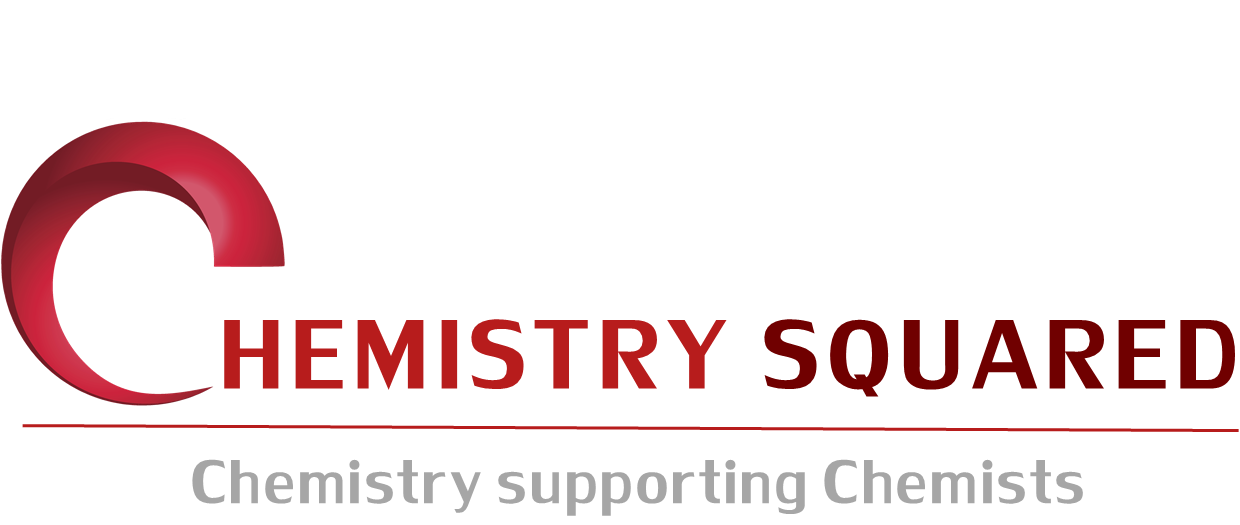
Reviewers
The editors of Chemistry2 will only consider as potential reviewers scholars who:
- are qualified to the PhD level (or equivalent) or above in the relevant field of investigation
- are active researchers
- have at least one recent publication in a peer-reviewed journal of comparable impact and reputation aimed by Chemistry2.
Code of conduct: the appropriate behaviour and obligations of a scientist towards colleagues and the public implies the acceptance of a 'code of conduct', which aims at maximising the benefits of scientific research to the profession and society, with respect for ethical principles. The sharing of knowledge is required for the advancement of science.
The publication of scientific research in Chemistry2 represents a fundamental way to serve the chemical science community. This activity relies on the responsibility of the authors, editors and reviewers for maintaining high ethical standards in relation to the publication of manuscripts. In the cases where these guidelines appear to be breached, the code of conduct and best practice guidelines of the Committee on Publication Ethics (COPE) will be consulted and the Editorial Office of Chemistry2 will act accordingly.
Conflicts of interest: Chemistry2 should be informed of any significant conflict of interest that editors, authors or reviewers may have, so that the appropriate action may be taken; for instance, a declaration of an author’s conflict of interest may be added in a published paper or a reviewer may be disqualified.
- financial: any current or expected financial interest in any organisation that may in any way gain or lose financially from the publication of a manuscript should be mentioned to the editors, authors and reviewers. For instance, the employment by an organisation, funds for research, funds for a staff member, consulting fees, stock or share holdings or patent interests may represent a conflict of interest, which should thus be stated.
- other interests: any conflict of interest that would be embarrassing when publicly disclosed may be communicated to an editor, author or reviewer; this includes: (i) a close relationship with, or a strong antipathy to, a person whose interests may be affected by the publication of the article, (ii) an academic link or rivalry with somebody whose interests could be affected by the publication of the article.
- Reviewers proposed by the authors: authors may recommend suitable, expert reviewers on submission of a manuscript. However, the following points should be taken into account when doing so:
- a close collaborator or colleague should not be recommended as potential reviewer;
- a proposed reviewer should not be at the same institute as any of the authors of the submitted manuscript;
- wherever possible, the institutional email addresses of the proposed reviewers should be provided.
The COPE ethical guidelines for peer reviewers can be consulted for further guidance on avoiding potential conflicts of interest during the peer review process.
Conflict of interest statement: a Conflicts of interest statement is required for all submitted manuscripts. If no conflicts exist, then the authors should add the sentence 'The authors declare there are no conflicts of interest' under a 'Conflicts of interest' heading before the Acknowledgements.
Ethical responsibilities: besides the adoption of the code of conduct and the conflict of interest policy, referees should:
- Respect the confidentiality of peer review and not reveal any information contained in a manuscript before its publication. If discussion with specific scientific expert(s) is required, the editor should be informed, with disclosure of the names of the consulted persons. Furthermore, the referees should not use any of the unpublished data, interpretation and discussion described in the manuscript for their own research.
- Destroy/erase the manuscript files (i) after having sent their evaluation report to the editor, (ii) after having been unqualified to review it or (iii) if they lack the time to review it, thus complying with data protection regulations.
- Evaluate the manuscript in an objective and timely manner, without any personal considerations.
- Inform the editor of any conflict of interest; the evaluation of a manuscript authored (or co-authored) by a person with whom a reviewer has a close personal or professional relationship is not recommended as this could bias her/his judgement.
- Respect the intellectual independence of authors.
- Clearly explain and properly support their assessments (for instance providing reference to published work), thus allowing the editor and the authors to understand the basis of their decision.
- Inform the editor of any similarity between the manuscript under consideration and a published paper or manuscript submitted to another journal.
- Alert the editor if signs of possible plagiarism, falsification or manipulation of data are detected.
- Not use information acquired during the peer review process for (i) their own advantage or that of any other person or organisation, or (ii) to disadvantage or discredit people.
Reviewing procedure: the reviewers' reports help the editor to take a decision. Therefore, the reviewers should very carefully evaluate the work and consider whether it is suitable or not for publication in Chemistry2 (see Aims & Scope of the journal).
If reviewers cannot assess the manuscript, the editor would welcome suggestions of alternative expert reviewers (together with their contact details) who may evaluate the work.
An invitation to review a manuscript should be declined if there is any conflict of interest between authors and the reviewer (see above). Any ethical concerns regarding the work or the authorship must be brought to the attention of the editor.
The editor, who is in charge of all administrative and executive actions, can accept or reject a paper. The editor is also responsible for judging whether a manuscript has been appropriately revised or not. Hence, consultation of the reviewers may be needed to ensure that authors have acceptably replied to their comments; further review is only undertaken when indispensable.
- Adjudication: in case of significant discrepancy between the evaluation reports of two reviewers, the editor will send the manuscript and the reports to a third expert reviewer. The role of this adjudicator will be to judge the work and the evaluation of the previous reviewers (and any authors' responses if available), and provide her/his comments to the editor who will take the final decision.
- Appeal process: after having been informed by the editor on a rejection, the authors have the right to appeal to the editor if they believe the decision is unfair. Appeals are granted at the discretion of the editor who will ask for a letter giving details of the motives of the appeal and a full and clear response to the reviewers' comments. The manuscript will then be sent to an expert senior reviewer who has not previously evaluated the work and who will give her/his opinion to the editor to help her/him take the final decision.
- Anonymity of the reviewer: the reviewers' anonymity is strictly preserved from the authors, unless a reviewer voluntarily reveals her/his identity. A reviewer should never communicate directly with an author, unless this has been agreed by the editor and the association Science2.
Reviewers may disclose publicly that they have acted as a reviewer for Chemistry2. However, a reviewer must not identify herself/himself as the reviewer of a specific manuscript nor reveal the contents of her/his review to any person or organization. This peer review confidentiality and anonymity should be respected both during and after the peer review process, without time limit.
Writing a review: reviewers should consider the Aims & Scope of Chemistry2. It is recommended that reviewers submit their report within 15 days (21 days for review papers) from the date of accepting the invitation. Reviewers who cannot submit their evaluation report by the deadline should inform the editor as soon as possible.
When writing the report, the following points should be considered:
- Is the article suitable for Chemistry2's scope?
- Is the article too concise? Is its length justified?
- Is the work presented novel and of interest to the chemistry community?
- Is the title properly reflecting the article content?
- Does the article title contain searchable keywords?
- Is the abstract self-contained without reference to the main text?
- Reviewers should mention in their report, which revisions are major concerns preventing acceptation, and which are minor concerns that the authors can easily address.
Reviewers should carefully assess any Supporting Information that is submitted together with a manuscript; the same standard as the article is expected, see Supporting Info.
Reviewers are asked to answer the specific questions on the evaluation report form (that is sent to them, and which can also be downloaded). These questions should help to prepare a constructive report that will be highly useful to the editor when making a decision.
Comments on language, grammar or spelling errors should be provided if it makes unclear the meaning of the science.
The editor should be informed if:
- signs of plagiarism are detected, like duplicated text and/or figures, similarities with other publications, etc. (see Ethical guidelines in Authors Responsabilities)
- any previous unpublished paper should be made available for the reviewing process
- the level of scientific rigor is questionable
- there is a clear lack of novelty (a list relevant publications corroborating it should be provided)
- fragmentation of work into several publications is suspected
- it appears that the manuscript contains personal criticisms
- there are ethical concerns regarding animal experimentation (see section Animal and Human Welfare in Authors Responsibilities)
- any supporting data that should be provided is missing
Reviewer recommendations: in addition to their report and answers to the editor's questions, one of the following recommendations should be given:
- Accept: the manuscript is suitable for publication in its current form (after copy-editing and proofreading)
- Minor revisions: the manuscript may be accepted for publication after responding to the reviewers' comments. The corrections should be minor and may include referencing another work or/and some rewriting.
- Major revisions: the manuscript may be accepted for publication; however, the authors should respond to the reviewers' comments and make the appropriate changes. The revision may include redoing or/and adding experiments. A substantial rewriting of several sections of the manuscript may be required.
- Reject: the manuscript is not suitable and should therefore not be considered further
Additional requirements:
- New compounds: as mentioned in the section Materials and methods in How to prepare your manuscript, any new compound should be fully characterized. Copies of all corresponding spectra and characterization data (including analytical reports obtained with a CHNS analyzer) should be supplied as Supporting Information.
Reviewers are expected to verify if the homogeneity and structure of all new compounds is clearly established. It should be pointed out that an accurate mass measurement of a molecular ion does not provide evidence of the purity of a compound; therefore, further independent evidence of homogeneity should be provided, for example, using HPLC.
- X-ray crystal structures: reviewers are not usually expected to check the accuracy of crystal data. However, the quality of the experimental crystallographic work should be verified, so as of the drawing of the corresponding structure. Reviewers should check if the relevant CCDC/ICSD numbers are provided alongside the corresponding CIFs and CheckCIFs (see Crystallography).
The editor may also send the manuscript to a crystallographer for crystallographic evaluation.
Data about crystal structure determinations and refinement should be included as Supporting Info, rather than discussed in the main text.








